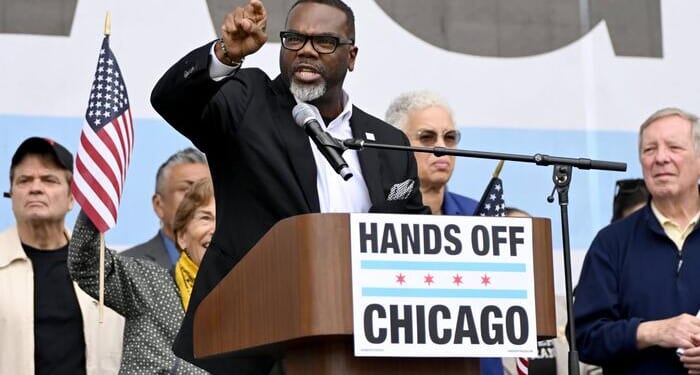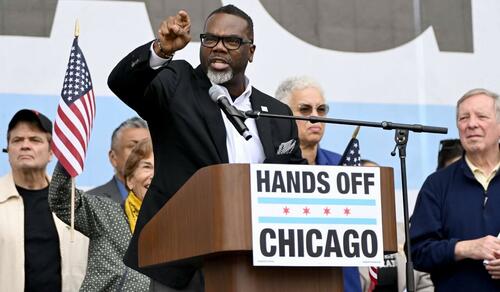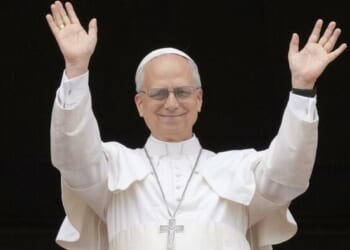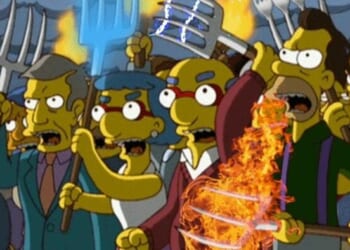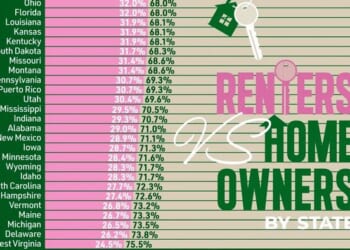Authored by Micky Horstman via AmGreatness.com,
This economy is one of the toughest job markets for entry-level positions, and now, Chicago Mayor Brandon Johnson is advancing new tax hikes in his budget that will make it even more difficult for Gen Z workers to build lives and careers in the city.
As he unveiled his third budget last week, Mayor Johnson took to a familiar tactic to fill a $1.15 billion budget shortfall: new taxes, higher fees.
The target of his worst tax hikes this time is the business community—and if history is any indicator, results are poised to be disastrous. Johnson announced he’d revive the city’s long-defunct business “head tax,” charging businesses with over 100 employees—such as McDonald’s, United, and other large firms—a $21 per employee per month fee.
Second-tier cities, including Raleigh, Baltimore, and our neighbor Milwaukee, have positioned themselves as technology hubs and are courting businesses and attracting young workers with affordable cost-of-living and well-paying positions.
Johnson, read the room. Chicago needs to do the same. Business giants such as Boeing, Caterpillar, TTX, Citadel, and Tyson have already left. This tactic will punish growth and make hiring even more expensive.
Even Gov. JB Pritzker has spoken out against the hike. Instead, the mayor is pushing for more taxes that risk driving out more businesses and young employees, right when Chicago most needs to grow and can least afford to lose them.
Chicago’s original head tax charged companies with 50 or more employees $4 per worker. It raised about $35 million annually before Mayor Rahm Emanuel phased it out, calling it a “job killer.”
The city estimates a new head tax could generate $100 million, yet the cost to Chicago’s competitiveness could be enormous. If you have 500 employees in Chicago, you would now owe $126,000 annually.
Chicago businesses already pay the third-highest state corporate income tax and the highest commercial property tax in the country. It’s no surprise that office vacancy continues to hit record highs, currently at 28%, and employers are fleeing to more competitive locales.
From 2015 to 2024, Chicago lost nearly one in five businesses—about 11,200 in total. The pandemic exacerbated a worrying trend. Chicago could lose hundreds more this year. Entrepreneurs and start-ups would be disincentivized from scaling or even opening their doors in Chicago in the first place. Why start a business in a city that will punish you for growing?
It would be especially hard for young Chicagoans trying to start their careers, as entry-level jobs are often the first ones cut when employers face new costs. Young workers who already struggle with Chicago’s rising cost of living may face fewer job openings, lower salaries, and slower hiring. New graduates across the Midwest could start choosing other cities instead.
Chicago’s unemployment rate already hovers around 4.6%—above the national average for large metro areas. Everyday Chicagoans are struggling to find work, while the city is pushing new taxes that will deter and punish large-scale employers, especially in blooming tech industries.
Johnson insists the city faces a “revenue challenge.”
But the problem stems from overspending and a city budget that’s grown faster than the city’s economy or population. Chicago’s budget has ballooned by $7 billion since 2019—a 62% increase. That’s more than double the growth rate of peer cities such as New York, Los Angeles, or Houston.
Federal relief masked overspending for years, but now that it’s gone, Johnson’s budget fails to address the increase in staffing and programming that was funded by temporary aid. As a result, City Hall keeps inventing new ways to nickel-and-dime Chicagoans. Johnson’s 2026 budget adds a first-in-the-nation social media tax on tech companies and increases taxes on rideshares, cloud-computing services, and sports betting.
Johnson would bankroll recent government spending by imposing a tax on private labor. Government institutions—Illinois’ fastest growing employer type—and nonprofits such as the Chicago Teachers Union will be exempt from the tax, despite being large employers themselves.
The city needs structural reform. Nearly 40% of Chicago’s local spending now goes to pensions and debt; the city desperately needs constitutional pension reform to address the growing, unsustainable burden. Chicago must right-size its government to at least 2019 levels, and should adopt a spending cap tied to 10-year inflation. Reducing the commercial property tax burden could also help attract large-scale firms that have been opting for low-tax states.
The best way to address the city’s revenue needs is to attract young residents and businesses and encourage existing employers to stay and expand—not by taxing them out of the city. Reviving a failed head tax will only make the city’s problems worse. It’s time to stop taxing work and start fixing government spending.
Loading recommendations…

